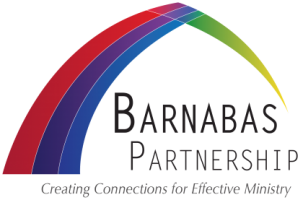
By Rev. Dr. Rick Jordan
In a small group prayer meeting, I facilitated a discussion on what “in Jesus’ name” means, based on John 14:13-14, when Jesus said, “I will do whatever you ask in my name, so that the Father may be glorified in the Son. You may ask me for anything in my name, and I will do it.”
Is “in Jesus’ name” a sign-off like “sincerely” or “Yours truly”? Is it an “I’m done for now” that concludes the prayer? Is it a legitimizer – like a notary republic seal signifying that this is a “real” prayer? Is it another way of saying, “Thy Kingdom come, they will be done”? Is the phrase necessary? (One member noted that it is not in the Model Prayer that Jesus taught his disciples.)
I’ve landed on the idea that my prayer in Jesus’ name is any prayer that Jesus would have prayed were he in my same situation. Jesus was God’s love incarnate, so a prayer that is grounded in the commandments to love God and to love one another can be safely said to be “in Jesus’ name” even when those three words are not spoken.
After the meeting, one of the members told me,
I don’t like rote phrases like “in Jesus’ name” or rote prayers. I was raised to say the ‘God is great, God is good’ prayer for a meal blessing, but it became meaningless—just syllables. Then I tried the Moravian blessing. Same thing – same words said over and over. Meaningless. So, I don’t do the meal blessing in our family. I mean, we have a blessing, but I won’t do it. My wife does.
I know his wife. Both are very involved in missions and other justice efforts. She is known as a deep and thoughtful teacher of the Bible. I asked, “What does she say?” He said, “A rote prayer,” then laughed.
Some prayers are perfunctory, which my online dictionary defines as an adjective meaning “carried out with a minimum of effort or reflection.” Leaders sometimes use “Let us pray” as a tool to shush conversations so a meeting can begin. Benedictions can become perfunctory, merely a signal that “another worship service is over.”
But the words in a rote prayer can be said sincerely and with thoughtfulness by the pray-er. A prayer can be perfunctory, but it can also be passionate, just like “How are you?” can be an empty greeting of “I am currently acknowledging your existence” or it can mean, “I’ve missed you and want to catch up and to support you.” I begin our Sunday morning Bible study sessions with prayer. “What concerns or celebrations do you have to share?” I ask. Each person is given the opportunity to respond. Then, I say a prayer out loud. At the end of the teaching session, I lead a concluding prayer. I hope my prayers are more than perfunctory. I hope to make these prayers “carried out with effort and reflection.” I hope the same for you as you lead groups in prayer this week.
These thoughts are from Rev. Dr. Rick Jordan, our partner based out of Lewisville, North Carolina. He is a 20+-year member of Ardmore Baptist Church in Winston-Salem, NC where he leads an adult Bible study, serves as a deacon and on the Vision Navigation Team. He has also ministered in various leadership roles from local churches to state and national levels. Contact him for more information on how our partner can help you.
